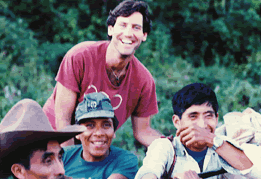Employment and Diabetes
Federal law and state laws are available to prevent discrimination against persons with diabetes. Over the last several years, since a ruling by the United States Supreme Court in a case called Sutton v. United Airlines in which the Court ruled that persons with vision problems that are correctable with eyeglasses are not protected by federal anti-discrimination laws, there has been some dispute about whether or not diabetes is still considered a protected disability under federal anti-discrimination law.
Those who argue it is not assert that diabetes is similar to a vision problem that is easily correctable because persons with diabetes can take oral medications or insulin to correct their medical problem.
It seems to me that people making this argument have clearly never actually taken insulin. Anyone who has taken insulin is all too well aware that, unlike wearing eyeglasses, the “cure” of taking insulin also entails serious medical risks. Perhaps more importantly, even if there were a risk free aid of some kind, it would still not preclude discrimination against persons with diabetes and would still not end the need for anti-discrimination laws such as the federal Americans with Disabilities Act (“ADA”) which is enforced by the Equal Employment Opportunity Commission (“EEOC”) and by private lawsuits for harmed employees.
Some states, such as California, have recognized that protection of citizens against discrimination based on health issues is too important to be left to the uncertainties of ADA interpretation by our present Supreme Court and have enacted more sweeping protections that eliminate the question entirely. California Government Code Section 12921, et. seq. (specifically including Section 12926.1(c)) explicitly protects persons suffering from diabetes in their right to “hold employment without discrimination because of…physical disability… [or medical condition…”], so there is no longer any question that diabetes is a protected disability in the State of California.
In order to take advantage of the protections of federal and state law, persons with medical disabilities must make meaningful efforts to work with their employer and explain their illness and what steps are necessary for them to perform their work duties with reasonable accommodations. These efforts are usually only necessary after hiring, since asking questions about medical issues is unlawful for most occupations during the hiring process. The exception to this rule includes jobs where certain illnesses are reasonably considered as making it unsafe or even impossible for the work to be done by the disabled employee. For persons with diabetes, this has included jobs such as commercial driving or being an airline pilot where the employee takes insulin. It has also sometimes included jobs in occupations such as fire and police work. But improvements in the ability of persons with diabetes to handle and manage their illness have made it no longer impossible for all persons with diabetes to work in these occupations safely and with distinction. As a result, employers typically must review the facts regarding the individual job applicant and that person’s ability to handle the job and the illness before making a hiring or retention decision.
I have represented many employees in these situations and, more often than not, have been able to work with the employer by explaining diabetes and the needs of the employee and been able to demonstrate that the employee is well able to perform the job well with reasonable and easily provided accommodations.
Here is an example of such a letter I wrote to the employer of one such client:
My own diabetes diagnosis when I was in college caused me to change my career ambitions. At the time, I was an editor of my university’s student newspaper and a reporter for a daily in Boston. My goal was to become a foreign war correspondent.
After my diagnosis, I was advised by my endocrinologist that my diabetes would make my career goal impossible, putting my life at risk as well as those around me who would be obliged to assist me with blood sugar problems. I changed my career path and ended up going to law school.
Years later, after dramatic improvements in insulin and blood glucose meters and other diabetes management techniques, I was able to travel to remote foreign locations struggling with brutal warfare. Instead of doing so as a journalist, I did so as an attorney, collecting evidence of war-time atrocities that led to grants of political asylum for my clients.
My own experiences taught me that it is no longer necessary to change one’s ambitions because of diabetes, so long as precautions are taken and reasonable plans are made.

Above is a photograph of me in Guatemala in 1989 while I was traveling with anthropologist James Loucky to uncover evidence of atrocities in the Ixtan jungle. Our work led to grants of political asylum for thirteen refugees, comprising more than 20% of all U.S. grants of political asylum for refugees from Guatemala
